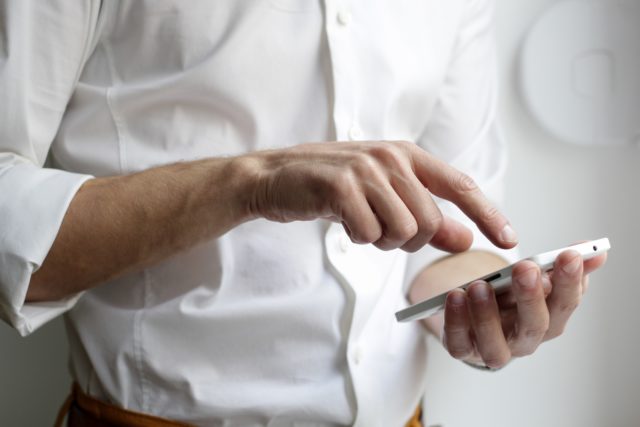A lot of people have recently switched to online banking to pay for online transactions and deliveries. That’s because 1) it’s much more convenient for those who don’t have cash on hand, and 2) it lessens the need to go to a bank to deposit money.
However, cyberspace isn’t just a place for people to pay; it has also become a jungle for scammers to lurk in. And they’ve gotten better at camouflaging. Through phishing, they can steal your credentials and prey on your hard-earned money.
Much like the word fishing, phishing refers to baiting users to give out their information by imitating sites or pretending to represent banks. Compared to before, scammers have really upped their game. Their grammar is correct, their messages are convincingly professional, and their fake websites look really close to the real deal. That’s why a lot of people become victims and lose their money.

Photo from Unsplash
Look Out for These Scams
With the Enhanced Community Quarantine still ongoing, people are relying on online transactions more than ever. Unfortunately, many scammers have appeared on the playing field, as well. Because of this, banks are constantly reminding us to be on the lookout for suspicious activities, such as the following:
- “Verify your bank account.” The scammer poses as a bank representative and sends you a link to a website that looks like the bank’s official website. They then trick you to input your personal information— account number, credit card information, or even your bank login details like your username and password.
- “Reactivate your account.” You may receive an email saying that your account has been deactivated and will require your personal information to get it back. This falsified email is made to look official, complete with the logo and template of the bank, plus an email address bearing the bank’s name.
- “Overpayment or Erroneous Charge.” Another phishing tactic includes a message saying that you were charged a certain amount. This overpayment or incorrect charge can then allegedly be waived by clicking the link provided, which again, asks for your personal information.
How to Avoid Being Scammed Online
In order to implement proper social distancing, online banking is encouraged. As such, the Bankers Association of the Philippines (BAP) has shared these tips to avoid getting scammed:
- Ignore any suspicious emails, calls or text messages. Should you get any, report them to your respective bank immediately.
- Never open or click on links that ask for your personal information or bank details. Banks do not send out emails like that.
- Only use official bank apps for online transactions. Download them through the Apple or Playstore, and make sure to check the ratings and number of downloads.
- If you plan on using their website, check your bank’s official pages to find out what their actual site looks like. Make sure the site has an icon of a padlock on the left side of the address bar. This is a sign that the site is protected by a Secure Sockets Layer Certificate (SSL). This isn’t fool-proof, though, since other phishing sites could still obtain them illegally. Still, it can help weed out obviously fake sites that aren’t protected.
- Watch out for misspelled words and extra characters in texts, emails, and websites. If there is something there that doesn’t make sense, it’s most probably a phishing site.
- Banks never ask for your personal information, account number, or one-time pin (OTP) through SMS, call, text, or email.
- Change your password regularly and create strong passwords with capital letters, numbers, and punctuation marks. As much as possible, don’t use the same password for all of your accounts.
- As much as possible, don’t use a shared network or shared computer because they can be traced and may attract hackers.
Online banking has its pros and cons, but it is just as important to keep a watchful eye for anything shady and to always check before inputting your personal information. Also, always remember never to share your OTP to anyone— it’s yours alone.
Got any other tips to add that could help safeguard your bank details? Let us know in the comments section!
Do you have a story for the WhenInManila.com Team? Email us at story.wheninmanila@gmail.




